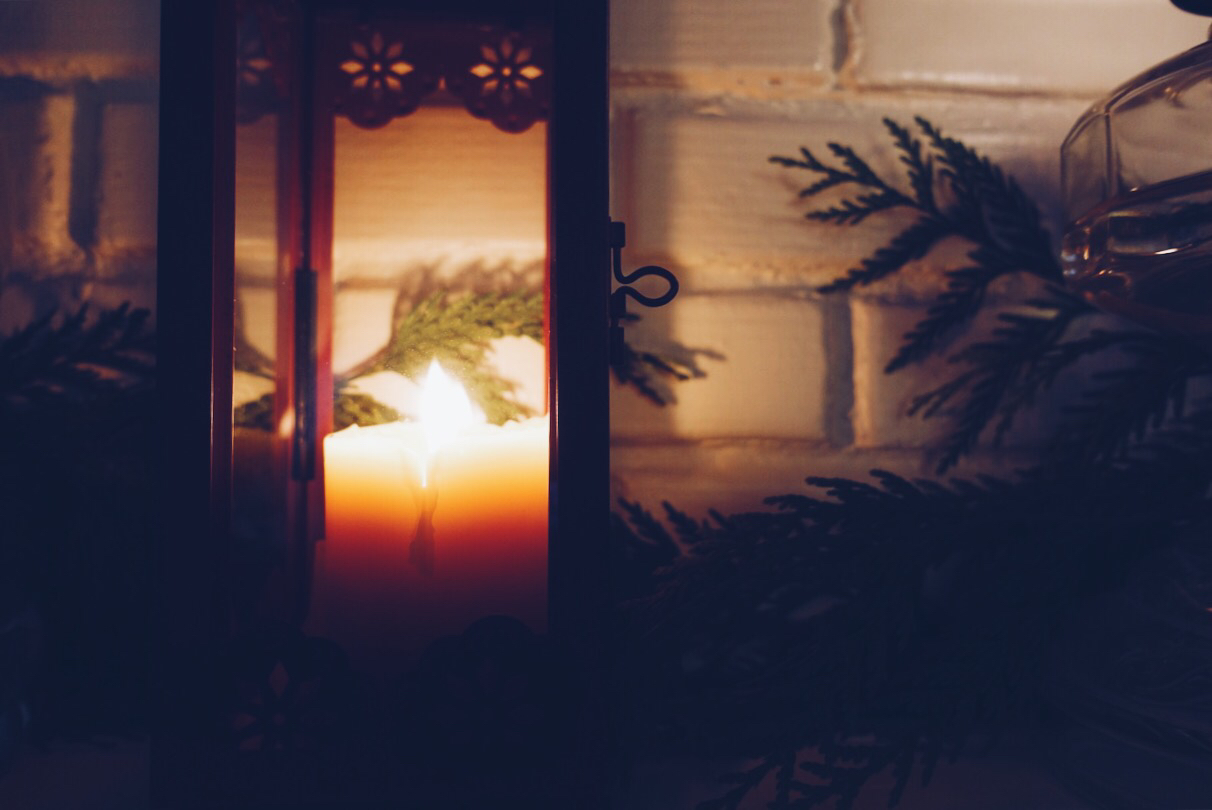a franciscan year
/I can't seem to shake off the monastics. I'm continually drawn to their disciplined rhythms and focused intention in attempting to make an outer life that reflects their inner lives. A couple of years ago I came across the Third Order Franciscans - an Episcopalian order that commits to live by Franciscan principles in their every day lives. I love their aims of love and simplicity. Looking over their Rule (guidelines for committed living) again this last month, I realized it could provide a container, of sorts, for the various threads I want to pursue in this coming year.
The last few years I've been looking for ways to integrate financial discipline with my concern for our (personal) middle-class disconnect - the distance between my pursuit of comfort and my neighbors' daily need, the condition of the planet, the growing class disparity in America, the mental and spiritual plague of consumerism, etc. I've tried various ways of tackling this, but the Franciscans brought it all together for me:
"Saint Francis...[desired] that all barriers set up by privilege based on wealth should be overcome by love. [...] we avoid luxury and waste, and regard our possessions as being held in trust for God. Personal spending is limited to what is necessary for our health and well-being and that of our dependents. We aim to stay free from all attachment to wealth, keeping ourselves constantly aware of the poverty in the world and its claim on us. We are concerned more for the generosity that gives all, rather than the value of poverty in itself.""Acknowledging that everything belongs to God, we seek to use his gifts wisely and to be good stewards of this fragile earth, never destroying or wasting what God has made. We provide the things necessary for ourselves and our families without demanding luxuries. We seek never to forget the needs of others."
The Rule for the Third Order encompasses several areas other than just finances, but they all braid together to support and enable each other. I think this is what I've been missing, a cohesive vision that addresses all the various aspects of how we make decisions and what motivates us. This is a brief outline of the Rule (found here):
The Holy EucharistPenitencePersonal PrayerSelf-DenialRetreatStudySimplicity of LivingWorkObedience
I've written some guidelines for myself that fall into each of these categories (although not always exactly as they are meant for actual members of the Order). They include praying the Divine Hours 3x daily (as able), periods of silence each day, reducing social media interaction to 1 hour/day (sounds like plenty, but it goes very fast between posting and answering comments, etc.), a no-shopping year, and regular hospitality. I'm calling it my Franciscan year, and while I know it will be a challenge, I also feel a sense of calling and peace.
"Humility, love, and joy are the three notes which mark the lives of Tertiaries." (Third Order members)
In this context, it does not seem burdensome to keep a routine of prayer or create space for silence or refuse to buy. It seems like opening a door and entering into the rhythm of the real world, where we work and yearn and make space for each other instead of mindlessly pursuing our own comfort and pleasure. I'm entering the new year with a lot of peace and assurance.
#
Since I know some people will have questions about what our no-shopping year will look like, I'll offer a brief outline of our plan here. Please remember, this is a journey toward integrity, not a competition about resources or stewardship.
2019 No-shopping Year.We will not shop/order/buy anything outside of the following:
Regular household expenses. (I have reduced our food budget slightly but this is a broad category overall and we have talked through what we need and what we can go without.)
Already scheduled home maintenance projects (this includes building a pole barn and some subsequent landscaping.)
Seeds/supplies for a small garden.
Replacing any necessary items that break or are lost.
Gifts for others (reduced budget).
Books necessary for work.
I'm sure there will be exceptions to these guidelines, because that's the way it goes in a large, busy family, but we do have a way to evaluate those needs as they arise. Mostly it involves talking, waiting, and considering whether it complies with our commitment to simplicity. I'm so looking forward to using what we have, making do, and learning new ways to meet needs.
As always, I love to hear your thoughts.
I'll leave you with this version of St Francis' famous prayer for peace: https://www.youtube.com/watch?v=agPnMxp5Occ



 We celebrate New Year's Eve/Day pretty quietly. We sometimes gather with friends or family, sometimes stay home. Almost always though, we write out plans and hopes for the next year.January 5th is Twelfth Night. There are a lot of fun traditions for Twelfth Night parties. We don't usually invite people over, but we do make a cake and hide a bean inside. The person who receives the bean in their slice of cake gets to be the King/Queen for the night (if you make a paper crown and find a scepter for them, all the better) and choose when to have more mulled wine, what movie to watch or game to play, etc. This is also a traditional time to pack up the tree and put away the decorations. (Except for the creche! The wise men are just arriving to meet the newborn King!)January 6th is Epiphany. Depending on how you count, technically the 13th day after Christmas, but it's the day when the light of Christ is revealed to the world (the Magi have arrived!) Some families save their gifts until this day. Personally, I like to have the Christmas decorations put away the night before so that this day feels light and clean and fresh. Apparently, I just discovered, in Ireland, this is also called
We celebrate New Year's Eve/Day pretty quietly. We sometimes gather with friends or family, sometimes stay home. Almost always though, we write out plans and hopes for the next year.January 5th is Twelfth Night. There are a lot of fun traditions for Twelfth Night parties. We don't usually invite people over, but we do make a cake and hide a bean inside. The person who receives the bean in their slice of cake gets to be the King/Queen for the night (if you make a paper crown and find a scepter for them, all the better) and choose when to have more mulled wine, what movie to watch or game to play, etc. This is also a traditional time to pack up the tree and put away the decorations. (Except for the creche! The wise men are just arriving to meet the newborn King!)January 6th is Epiphany. Depending on how you count, technically the 13th day after Christmas, but it's the day when the light of Christ is revealed to the world (the Magi have arrived!) Some families save their gifts until this day. Personally, I like to have the Christmas decorations put away the night before so that this day feels light and clean and fresh. Apparently, I just discovered, in Ireland, this is also called 

